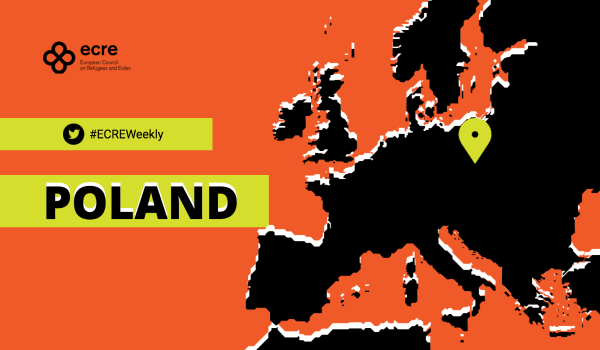Almost two million people have entered Poland since the start of Russia’s invasion of Ukraine. Krakow and Warsaw are warning that their ability to absorb refugees is stretched to the limit, despite the herculean solidarity efforts of locals. While volunteers assisting Ukrainians have been welcomed, volunteers attempting to assist asylum seekers at the border with Belarus have been threatened with criminal sentences. A case regarding the deportation of an Iraqi family to Belarus will soon be heard by a court in Białystok.
Mass displacement from Ukraine has left Poland with what some define as the world’s fourth largest refugee population. This claim is disputed, as the “refugee” category is interpreted differently in various displacement data. Further, it is unclear how many people have moved on from Poland into the rest of the Schengen area, as records only track those who have entered Poland, a figure that stands a 1.975 million. Nonetheless, the figures are unprecedented in Europe in recent times, with more than 200,000 people crossing into Poland daily at the peak of arrivals. On 13 March, Russian forces bombed a military base near Lviv, just 23 kilometres from Poland, generating ever-closer displacement. While border crossings have decreased to 130,000 or less daily in recent days, the humanitarian needs in Poland remains immense.
Poland’s two largest cities are warning that they will soon no longer be able absorb Ukrainian refugees. Thousands are arriving in Warsaw every day, where the central station has been equipped with information booths, volunteer translations and free coffee. Eight new trains are running daily to Germany, making 16 total daily trains between the two countries. Nevertheless, the mayor says the Ukrainian arrivals have increased the city’s population by 15 per cent. Krakow meanwhile has received more than 100,000 people for a population of 780,000. Krakow mayor Jacek Majchrowski said that his government would begin sending Ukrainian refugees to accommodation outside the city.
Reportedly, much of the responsibility to house, feed and care for Ukrainians is being shouldered by local communities and international activists. “The help is coming from people, not governments,” one volunteer said. “The best you could say is that the government is not interrupting us”. Government support measures include proposals for a law allowing people who house refugees to claim 8.3 euro per day per person. Despite the solidarity from ordinary people, the national health and social support systems are expected to also come under pressure. Mateusz Morawiecki, Poland’s prime minister recently appealed for more EU support. “We will need both financial support and greater European openness to refugees” he said on 13 March. Morawiecki’s conservative-nationalist government has since 2015 vehemently opposed EU quotas for fair sharing of asylum seekers across the bloc.
Relief efforts in response to Ukraine displacement are a far cry from Poland’s hostile response to asylum seekers arriving from Belarus. The situation at the latter border remains alarming, seven months after the start of “instrumentalisation” by Belarus. Lawyer Marta Górczyńska stated on 14 March that: “Men, women and children are being denied assistance in Poland and pushed back to Belarus”. The Provincial Administrative Court in Białystok will soon examine one such case, in which an Iraqi family was forced back to Belarus without consideration of their vulnerability to refoulement or need for international protection. Worryingly, new reports are emerging of Belarussian agents forcing “instrumentalised” refugees across the border not only into Poland, where they have faced violence and denial of protection, but also into Ukraine.
For further information:
- ECRE, EU Eastern Borders: Ukraine Invasion Drives Displacement, Vast Majority of ECtHR Injunctions Granted, Calls for End to Polish Emergency Laws, February 2022
- ECRE, EU Eastern Borders: “Disastrous” Reception Conditions in Poland and Lithuania, Pushbacks Denounced, Uptick in Arrivals to Latvia Amid Fears of War in Ukraine, February 2022
This article appeared in the ECRE Weekly Bulletin. You can subscribe to the Weekly Bulletin here.

